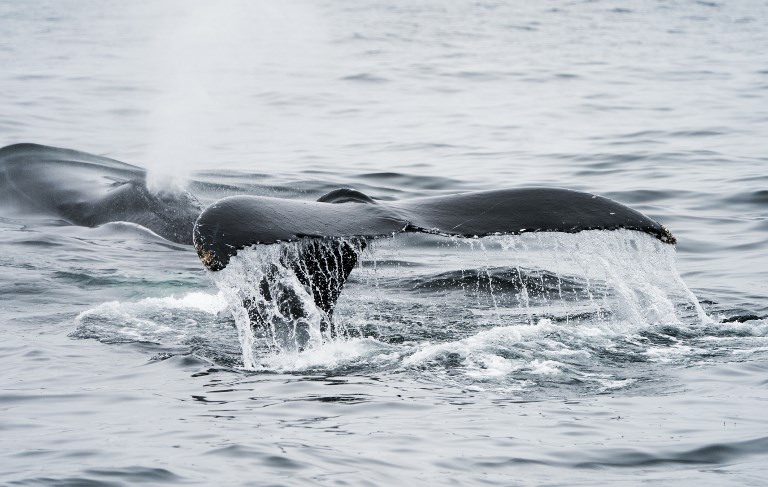
by Kerry SHERIDAN
Agence France Presse
TAMPA, United States (AFP) — Humpback whales are famous for their eerie, underwater songs. But researchers in Japan said Wednesday these massive marine creatures stop singing, at least temporarily, when human-driven ships are nearby.
Researchers focused on the remote Ogasawara Islands in Japan, some 620 miles (1,000 kilometers) south of Tokyo, where a single passenger-cargo liner passed through the area once per day.
Male humpback whales sing as a way to communicate and attract mates.
But by plunging a pair of hydrophones into the water to listen to the whales’ reaction — about 26 of whom were detected in the study area — researchers found that the approach of a ship silenced them.
“The main reaction of humpback whales was to stop singing either when the ship approached or after it passed by,” said the study in the journal PLOS ONE, led by Koki Tsujii from Ogasawara Whale Watching Association and Hokkaido University.
Fewer male humpbacks sang in the area within 500 yards (meters) of the shipping lane than elsewhere.
“After the ship passed by, whales within around 1,200 meters tended to temporarily reduce singing or stop singing altogether,” said the study.
Many whales did not start to sing again until a half hour after the ship was gone from the area.
Since ocean noise has been on the rise in recent decades, some experts said the findings raise new questions about what other whale behaviors might be changing due to mounting human presence on the high seas.
Linda Weilgart, a researcher at Dalhousie University who was not involved in the study, called the whales’ responses “remarkable,” particularly since the single ship’s noise was not very loud.
“As the authors note, however, ongoing studies are required to determine if indeed the response was temporary, as factors such as stress levels need to be considered and examined,” she added.
“Also, it is unknown what such modifications in singing behavior, a vital reproductive behavior, have on their reproductive success.”
Only male humpback whales sing, so the research did not delve into the effects of shipping noise on females and calves.
Nicolas Entrup, policy expert at OceanCare, a Swiss-based wildlife advocacy group, said the impacts on whales appear to be “quite significant given the fact that it addresses the impact of a vessel crossing an important whale habitat just once a day.
“In some regions, shipping lanes exposed to dozens of container ships crossing such habitat create significant impacts which may go far beyond a change in the vocalization behavior. Therefore, this piece of research adds another piece to the puzzle of a blue planet that has become far too loud for whales,” he said.
© Agence France-Presse
